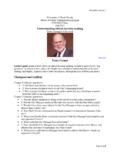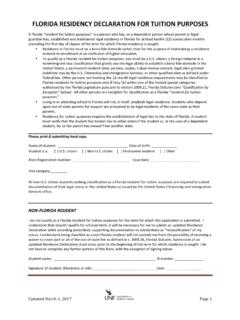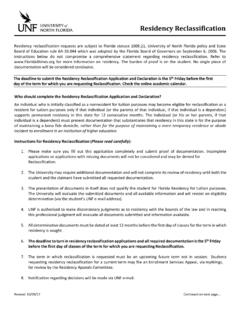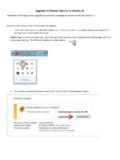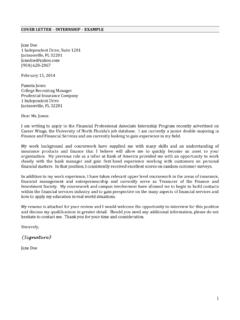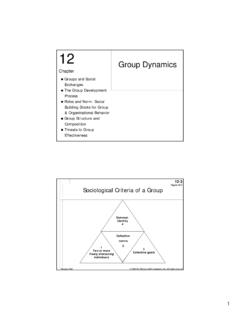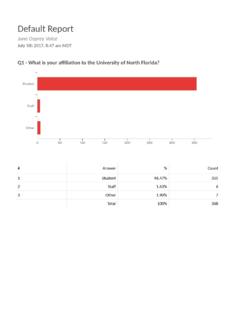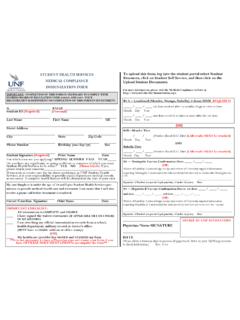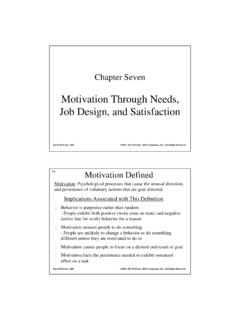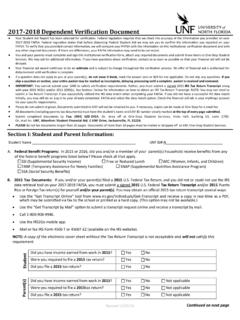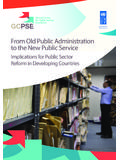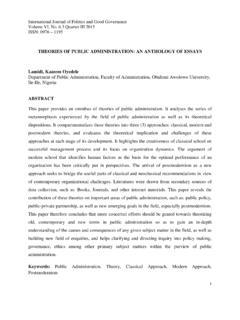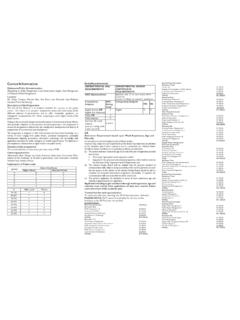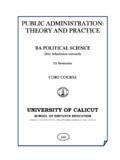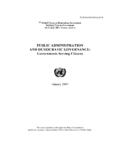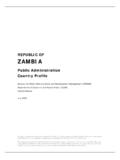Transcription of Master of public administration program PAD 5384 …
1 PAD 5384 lecture six Page 1 of 10 Master of public administration program PAD 5384 Civic groups & public policy Summer 2014 Policy formulation and evaluation Policy formulator of the week Photo credit Christina Romer Economic forecaster * Lecture goals: Introduce a range of issues surrounding the analysis of public policies, emphasizing especially how difficult this can be when civic groups get involved! * The tobacco settlement is, for me, perhaps the paradigmatic example of irrational, even obscenely irrational public policy.
2 My take on it goes something like this: Tobacco is, literally, more American than apple pie, having been introduced to the world by indigenous Americans. Oddly, it turns out that if you inhale the smoke from burning vegetation, it is bad for your lungs. o I blame the Boy Scouts for the delay in getting this information out. They have known for decades that when you sit on the downwind side of a fire, it is unpleasant, causing coughing, and black boogers. Yet they didn't tell anyone. Coincidence, or conspiracy!
3 !! Since early in my life, though, the harmful effects of sucking smoke into your lungs has been known. The US Surgeon General mandated that cigarette packs carry the text: "Caution: Cigarette Smoking May be Hazardous to Your Health" since 1966. I (born in 1959) remember this! But like many other potentially harmful activities (over-eating, not exercising, fighting wars on maxed-out credit cards, cheap gas, etc.) cigarettes weren't banned. Fast forward 30-40 years: class action lawsuits began to be filed against the tobacco companies.
4 They were accused of hiding the fact that tobacco is harmful? As indicated, I find this all hard to believe, given those warning signs on the cigarette packs. So if big tobacco was trying to hide the harmful effects of tobacco, they were doing a bloody awful job of it. But our first interest group enters the scene: trial lawyers, smelling big payoffs. A second interest group entered the scene shortly after: state governments. They got on the sue-big-tobacco bandwagon on the argument that they had incurred massive costs in providing the health care for people stricken with tobacco-related disease.
5 PAD 5384 lecture six Page 2 of 10 o So even though these governments allowed the sale of these products known to be harmful, and reaped huge amounts of revenue in taxing cigarettes, they joined these lawsuits to get paid back for these health costs. A third interest group was, broadly, anti-smoking fascists. These are trendy-lefty sorts who, for whatever reason, have decided that tobacco, this ancient crop that was part of indigenous American spirituality and culture, is bad. Its use should therefore be severely curtailed.
6 Marijuana, on the other hand, is fine for these folks and should be decriminalized, because, well, it just should. o Many of these anti-smoking sorts became a fourth interest group, as they got lucrative jobs working in tobacco cessation programs, in which a bunch of dourly dressed adults tell kids that smoking is for squares, man. Of course the 'tobacco settlement' awarded kajillions of dollars to the plaintiffs: state governments. The trial lawyers took their cut, kajillions of dollars as well. o Yet who is to bear the costs: smokers themselves, of course!
7 Tobacco companies have hiked their prices to the victims, to pay the state governments (and trial lawyers) for the costs of health care that the state governments (but not the trial lawyers) have incurred in treating smoking-related illness. o And yet America has no 'socialized' health insurance system, so a smoker who becomes ill, but isn't covered by Medicare or Medicaid, will not have her/his costs paid even though the state governments won a settlement based on the need to cover the costs of tobacco-induced illness.
8 O The state governments, meanwhile, have been pissing away the tobacco settlement money as fast as it comes in, occasionally even selling the future rights to tobacco settlement revenues in exchange for short term cash. Is this not just the wackiest public policy one can imagine? o I can imagine only one thing that would make it wackier: the same lawyers who won the kajillion dollar settlements that taxed smokers to pay for their health care costs, will now file new class action lawsuits on behalf of the smokers, suing state governments for wasting all that money.
9 Policy formulation As indicated, policy analysis is something done in the 'formulation' stage of our model of the policy process. 'Formulation' was further divided into estimation and selection. By 'estimation' we mean analysis: gathering data and 'estimating' the parameters of the problem, the likely impact of some possible solutions, etc. To repeat the description of these sub-stages: Estimation: "Estimation continues work begun during initiation: systematic investigation of a problem and thoughtful assessment of options and alternatives are its characteristic tasks.
10 Specifically, estimation concerns the accurate determination of all likely costs and benefits that are expected to flow from decisions taken during the subsequent, or selection, stage of the overall process. Consideration is given both to the probable consequences of positive action and to those expected to result from inaction, whether intentional or not. Estimation efforts aim to reduce uncertainties about possible choices to the greatest extent possible, given time, intellectual, and other constraints" (Brewer and deLeon 1983, p.)
